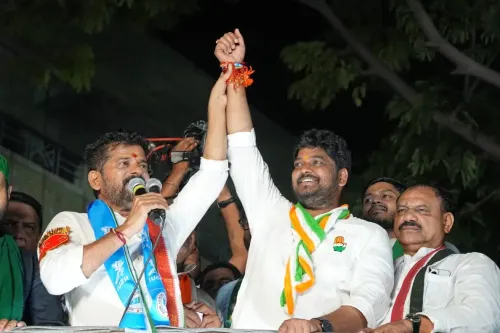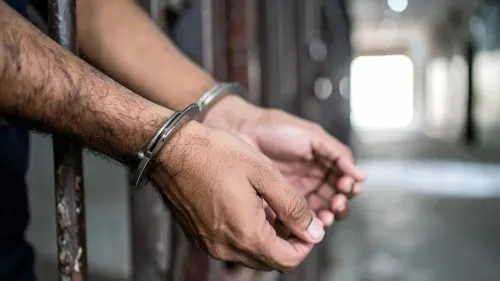Supreme Court Issues Contempt Notice to Delhi Home Secretary

Synopsis
Key Takeaways
- Contempt notice issued to Delhi's Principal Secretary, Home.
- Failure to decide on remission for Sukhdev Pehalwan.
- Supreme Court mandates video conferencing appearance.
- Previous assurance from Delhi government unfulfilled.
- Case highlights issues of personal liberty and caste discrimination.
New Delhi, Mar 17 (NationPress) The Supreme Court issued a contempt notice on Monday to the Principal Secretary, Home of the Delhi government for failing to make a decision regarding the remission of a convict involved in the 2002 Nitish Katara murder case.
A bench led by Justices Abhay S. Oka and Ujjal Bhuyan instructed the senior official to clarify why he should not face action under the Contempt of Courts Act and mandated his presence via video conferencing on March 28, the scheduled date for the hearing.
The bench, headed by Justice Oka, noted that the Delhi government had previously assured that the remission request of Sukhdev Pehalwan, currently serving a 20-year prison sentence in this high-profile case, would be resolved within two weeks.
“We believe that unless a contempt notice is issued, our orders are not complied with,” stated the apex court after being informed that the Sentence Review Board (SRB) has yet to evaluate the remission plea submitted by the petitioner.
In this notable case, Sukhdev Pehalwan was sentenced to 20 years in prison, while co-convicts Vikas Yadav and his cousin Vishal Yadav received 25 years of actual imprisonment without remission for the kidnapping of Katara from a wedding in February 2002 and subsequently murdering him due to his alleged relationship with Vikas' sister Bharti Yadav.
Vikas Yadav is the son of Uttar Pradesh politician D.P. Yadav.
The murder of Katara was executed as Vishal and Vikas Yadav disapproved of his relationship with Bharti, citing caste differences, as noted by the lower court in its ruling.
Vikas Yadav has also approached the Supreme Court challenging the rejection of his remission request. His petition argues that the right to remission is part of personal liberty protected by Article 21 of the Constitution, asserting that no criminal court can impose a minimum sentence of 25 years in life imprisonment cases to qualify for remission.
Conversely, the complainant, Nilam Katara, mother of the victim, has requested the dismissal of the convict's writ petition.









